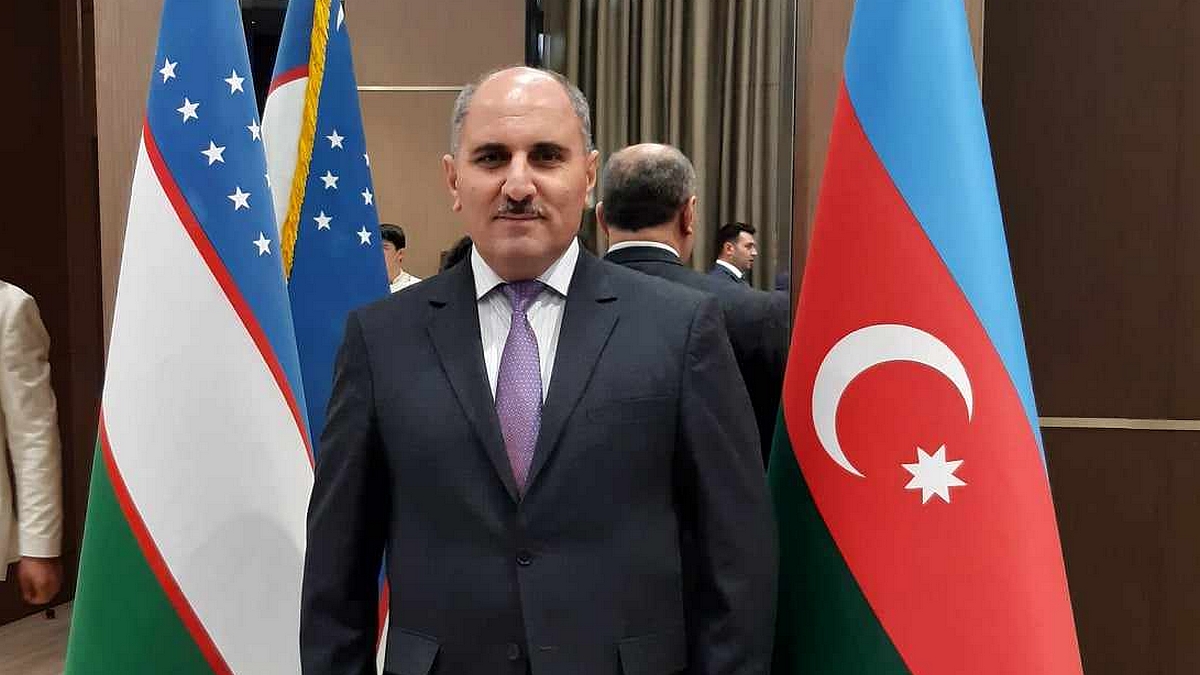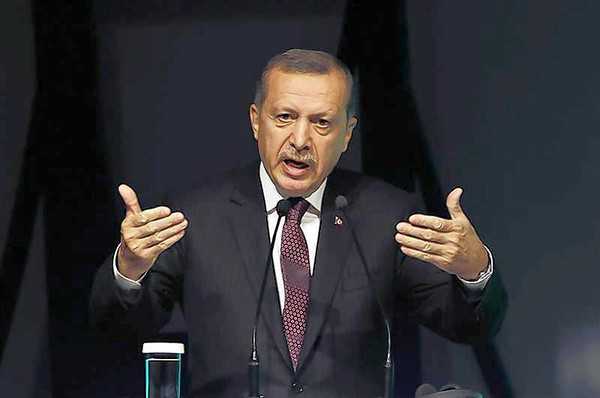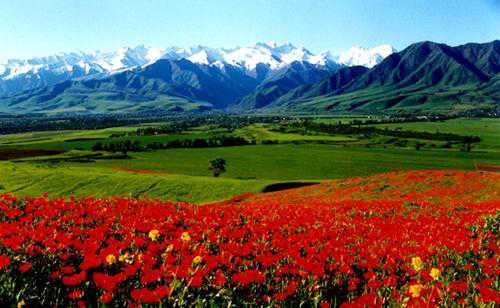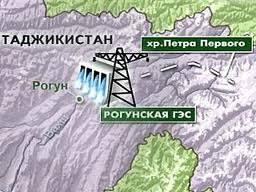
Over the past few years the attention of wide circles of international community, respected environmental organizations, experts of research centers in many countries engaged in studies of water management construction, riveted to the persistent efforts of Tajikistan on reanimation of the project on construction in the headwaters of Amu Darya of the complex of structures of Rogun Hydroelectric Power Plant (HPP) with the capacity of 3600 MW.
Previously it has been repeatedly noted that the construction project of Rogun HPP carries significant and massive technological, social, environmental and socio-economic risks and dangers, which is why its implementation induces justified opposition and objection of respected International Organizations and eminent experts, as well as countries in downstream ofAmu Darya.
It is primarily due to the following main factors. First of all, these include the technical project solutions for construction of Rogun HPP that do not meet current requirements and has been developed during the Soviet era, 35-40 years ago, with the distinctive feature of the period of pursuing gigantomania, and based on outdated standards, construction norms and rules that fall short of current requirements of ensuring the construction of hydraulic structures that are safe in all respects. This was repeatedly stated by the eminent professionals and experts.
Large-scale problems and accidents encountered by the builders of large HPPs built in the last few decades (“Three Gorges” in China, “Sayano-Shushenskaya HPP” and “Boguchanskaya HPP” in Russian Federation, large HPPs in South America, etc.) led to a reasonable conclusion that the standards and requirements that apply at present to such hydro facilities have dramatically changed and this caused in many cases the revision, suspension or even rejection of projects on their construction.
Besides, already during the engineering of Rogun HPP project Soviet specialist could not find adequate technical solutions for a number of major issues that remained unresolved. These include, in particular, measures to offset the inevitable effects of filtration and impact of a huge mass of water on a strong (more than100 metersthick) layer salt that lies at the base of the dam, as well as the high mobility of rock masses in the area of construction. Since then problems only worsened, as evidenced by the crash and complete destruction of a temporary bridged Rogun dam in 1993, as well as several other subsequent accidents.
Secondly, the project incorporates the construction of the dam with unprecedented in the world practice height of335 metersin the rock mass with repeatedly confirmed seismicity of 9-10 points on the Richter scale.
The construction site of Rogun HPP is situated in relatively newly formed mountain ranges of Vakhsh tectonic fault, an integral part of the chain of regional Southern Tian-Shan and Hissar-Kokshaalsk faults. The seismicity of these zones is the highest inCentral Asia, with the repeated cycles in the form of regular earthquakes up to 10 points. Such earthquakes, that occurred inTajikistanin the first half of last century, claimed in total the life of more than 100,000 people. It is suffice to recall the earthquake in 1911 of more than 9 points, which led to the formation of Usoy natural landslide dam andLakeSarezwith the capacity of 20 billion cubic meters of water.
This region is entering the stage of high seismic activity. According to the U.S. Geological Survey, there are up to eight earthquakes recorded weekly in the Pamir-Hindi Kush mountain range, which includes the Rogun HPP construction cite. A strong earthquake occurs inTajikistanevery four year and devastating one – every 10-15 years. Based on data analysis, some experts predict that over the next ten years one should expect strong destructive earthquakes in this mountain range. This is also confirmed in research studies by seismologists, including Tajik scientists.
In addition, construction of such a huge dam would require moving and disposing of 80 million cubic meters of soil, which, along with the 14 billion tons of water reservoir, will create additional pressure on the mountain. This will increase seismic vulnerability of the region, and one can surely predict that construction of the Rogun HPP will increase frequency and intensity of earthquakes in this area.
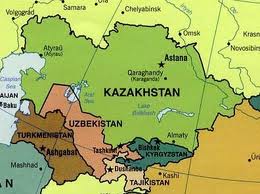
What would be the consequences of destruction of such a HPP caused by earthquake or human factor? Scientists and engineers estimate that dynamic pressure of 14 cubic kilometers of water trapped in the reservoir is capable to create giant waves – the so-called man-made tsunami – with more than100 metersin height, rushing down to theVakhshRiverat a speed as high as 500 km/per hour. It can completely destroy the Nurek dam, all other HPPs and hydro sites along the Vakhsh cascade and can flood the towns of Nurek, Sarban, Kurgantyube and Rumy. Moreover, while continuing its destructive movement, the flood wave would demolish dozens of towns and villages inTajikistan,UzbekistanandTurkmenistan, causing to incalculable consequences and death of many hundreds of thousands of lives.
Thirdly, the Rogun HPP Project poses a long-term and irreversible threat to environment of the region as well as in the socio-economic sphere.
Construction of a gigantic HPP would break delicate ecological balance in the region, having a devastating impact on water resource management and environmental situation. The formation of a water reservoir of 14 cubic kilometers will require a significant limitation of theVakhshRiverflow for at least 8-10 years, which will disrupt long-term water flow regulation in the region and increase water deficit up to a disastrously high level.
The construction of the HPP would completely disrupt the structure of natural water flows by decreasing the water flow sharply during the growing season and increasing water feed in the autumn-winter period, which will result in severe water scarcity, drought in summer time, as well as disastrous winter floods for downstream state of theAmu Darya.
A hydrological regime change of the Amu Darya River will also increase channel losses, which makes up to 15% in low-water period, accelerate the drying of downstream lakes and wetlands, emergence of new salt marshes and saline takyr surfaces, which would become major sources of salt transposition to adjacent farmlands, reducing soil fertility and crop yields on the ground. As a result, this will worsen environmental disaster of theAral Sea, which has a global impact.
It will also completely destroy economic basis of production and the prevailing modus vivendi way of more than 10 million people living in the Amu Darya downstream oasis inUzbekistanandTurkmenistan, who will be doomed to drought, hunger, and eventual displacement.
It is estimated that direct economic loss of the downstream countries, including Uzbekistan, resulting from the construction of Rogun HPP, make up more than $ 20 billion with no state willing to compensate. Additional economic and social problems will emerge as a result of forced displacement of people suffering from water shortage, causing sharp social instability to increase in the region.
As a result, total economic damage from this project is unquantifiable, and how, in what currency and what numbers the suffer and misery of millions of people could be estimated?
It is obvious that the construction of such dam contradicts not only to technical standards, economic logic, but also to the common sense, in general.
Precisely these threats from construction of Rogun HPP station are causing legitimate concerns of the international community and wide range of international organizations, such as United Nations, International Commission on Large Dams, World Water Council, International Union for Protection of Nature, as well as members of the European Parliament, Parliaments of the United States, Belgium and other countries, scientific and research centers of Japan, USA, the Netherlands, South Korea and other states.
As result of broad discussion of the problems associated with this project at various levels in the United Nations bodies, international scientific-practical forums and conferences, implemented over past few years, brought an understanding and clear formulation of principal position of the international community on necessity of carrying out of in-depth objective independent international expertise of this project.
It should be noted that opinion of independent experts goes inline with the norms of the international law in the field of transboundary water resources management. A number of UN conventions, such as The United Nations Convention on the Protection and Use of Transboundary Watercourses and International Lakes of September 18, 1992; The 1997 United Nations Convention on the Law of the Uses of International Watercourses, adopted by the UN General Assembly on May 21, 1997, are clearly defining the requirements for compulsory consideration of interests of all parties, located in zone of influence of transboundary water facilities, before taking decisions on elaboration of the projects associated with a transboundary effect.
Moreover, The Convention on Environmental Impact Assessment in a Transboundary Context, which entered into force in 1997, envisages a full accounting of environmental consequences from construction of such facilities, and implementing of in-depth assessment of their impact with attraction of all interested parties.
Taking into account the opinion of international organizations and structures, and on the basis of international law, the World Bank decided in 2010 to conduct an independent international expertise of the project of construction of Rogun hydro-power station and provided USD 20,0 million for its implementation. A number of European firms from France, Switzerland and other countries are involved in this studies and its completion is expected at the first quarter of 2013.
In its turn, the government of Tajikistan took commitments in 2010 not to carry out construction works on Rogun hydro-power station’ site until the completion of independent technical, economic, social and environmental impact assessment from. At the same time Tajikistan pledged to the International Monetary Fund to stop campaign on forcible fund-raising from the population to finance the project of construction of Rogun hydro-power station.
However, unfortunately, at the present time it must be noted that, regardless of its commitments to the World Bank and IMF, the Tajik side is continuing to implement its “idee fixe”, unilaterally grossly violating the achieved agreements to prevent construction works at Rogun hydro-power station.
Numerous facts indicate that Tajikistan, in hidden from the international community, is carrying out behind closed doors a wide range of works on construction cite, which was started in the 1970s. At the present time massive construction works are being carried out on the site of Rogun HPP, its constructional drainage tunnels, turbine hall, quarries and other facilities of the station.
Both, the Tajik authorities have been actively attracting foreign contractors (fromRussia,Ukraineand other countries) to carry out works on designing the Rogun HPP facilities.
At the same time the Tajik side has been making contracts for supplies of equipment, components and materials needed for launching the first phase of the plant. Particularly, so far the equipment for launching the first power unit has been procured, produced and delivered. Shortly production of equipment for the second unit is to be finished and preparation for delivery is underway.
Along with allocation of significant budget funds for the last several years (more than USD 200 million annually), Tajikistan in violation of its obligations before the IMF has lately enhanced the compulsory sale of Rogun shares to the population despite harsh financial conditions of majority of people in the country.
All these actions are taken under enormous pressure of the Tajik leadership who recently claimed “that who against Rogun project is the enemy of the Tajik nation”.
Natural question arises – what is final objective of the construction or Rogun HPP, why despite numerous objections and violating all norm of international law,Tajikistanhas been trying to complete in accelerated paces the first stage of the plant?
The answer is clear – their final objective is to complete the first stage of the plant and put the World Bank and the entire international community in front of the fait accompli and thus legalize that which is actively opposed by the expert community and international structures.
Distorting the real situation, misleading and hiding the real works from the world community, the Tajik side has been trying to win time and finish the started works, to cross the line of no return when international experts will have to put up with the fait accompli of completed Rogun HPP.
At the same time the Tajik side through the controlled media and experts on payroll has been irresponsibly speculating, completely distorting facts and arguments of international experts, manipulating figures with a view to convince the people of Tajikistan that there is no alternative to the construction of Rogun HPP.
Thereby they have been trying to distort the real state of affairs and use all possible and impossible means to accomplish their goal which is construction of the Rogun HPP while ignoring all catastrophic risks and dangers which this project may entail.
One should stress that many of international experts and neighboring countries of Tajikistan located in the lower reach of the Amudarya river have been proposing a reasonable alternative which might address the problem of a reliable power supply to Tajikistan at a significantly less cost and time not creating a large-scale man-made, ecologic, social and economic threats for both Tajikistan and its neighbors. That alternative is the construction of a number of small scale hydropower plants. Considering this alternative has been one of the most important directions of the World Bank activities.
Following conclusions can be made from the aforesaid:
First. It is not normal when the Tajik side has been continuing the construction of the Rogun HPP ignoring numerous warnings and recommendations of international experts and specialists gravely violating its commitments on suspending all civil works until the completion of the World Bank expert examination.
Second. The policy adopted and pursued by the Tajik and which is based on covert continuation of the construction of the Rogun HPP may entail the gravest and unpredictable consequences impossible to mitigate. It cannot be ignored.
Pravda Vostoka, July 12, 2012


